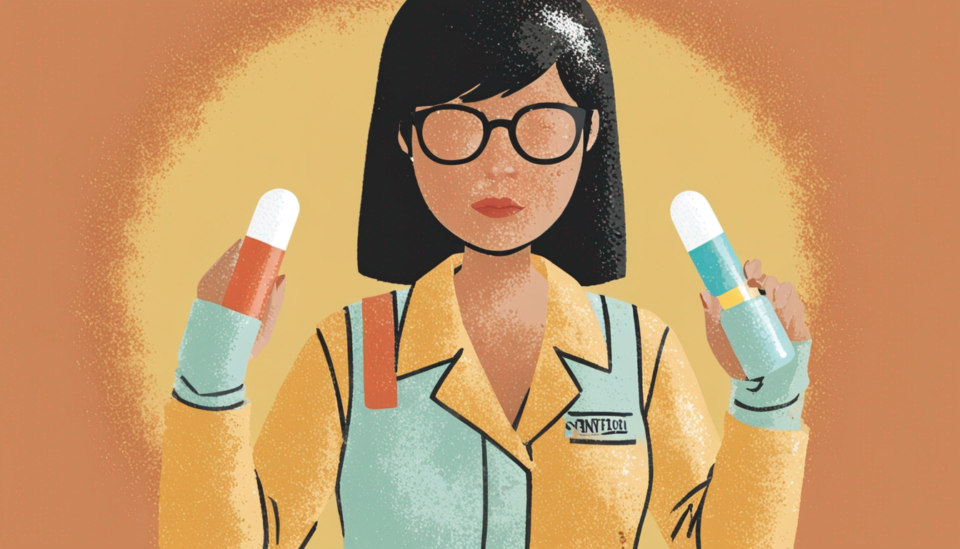

Clinical trials are often misunderstood, especially among patients navigating chronic conditions. Through my recent conversation with Tina Aswani, a passionate patient advocate and founder of the South Asian (inflammatory bowel disease) IBD Alliance, I gained deeper insight into the myths and fears surrounding clinical trials. These misconceptions don’t just exist in patients; they can subtly shape how we, as life sciences professionals, approach trial design and communication. Let’s unpack the big myths and explore how we can bridge the gap between clinical trial science and patient understanding.
One of the biggest misconceptions patients have is the fear of getting a placebo, which many equate to receiving “no treatment at all.” Tina shared that the fear of placebo is a huge barrier for patients considering trials.
“Patients think it’s potluck: Do I get the treatment, or do I get a placebo? They don’t realize it’s not just about one or the other. Trials are usually structured to ensure they’re still getting the standard of care if they’re not receiving the investigational treatment.”
In reality, most trials are designed to include either the experimental treatment or the best available standard of care—rarely just a sugar pill. Patients aren’t left without options, and this misunderstanding often keeps them from accessing the potential benefits of cutting-edge care.
For patients, the word “randomization” can feel unsettling. It’s easy to see why: it implies a lack of control in an already vulnerable situation. Tina’s response to this was direct and insightful:
“Patients don’t always understand the randomization process. Some even think their worsening symptoms are tied to whether they got the placebo or not. But in reality, many trials are designed to allow patients access to the investigational treatment if it’s effective, even after the placebo phase.”
As professionals, we must clarify that randomization is a scientific tool designed to eliminate bias, not an arbitrary gamble. It ensures the reliability of trial results, which in turn benefits patients long-term.
Myth #3: Trials Offer Little Care
A common misconception is that clinical trials prioritize data collection over patient care. However, the opposite is often true. Tina shared her experience of receiving exceptional care during her trial participation:
“I was being seen weekly. Granted, it was a lot on me to have my mother drive me two hours each way into New York City, but there was solace in the fact that I had such robust care,” she explained.
For patients with limited access to healthcare or specialists in their disease, the care provided during a clinical trial can be a welcome and much-needed resource. Trials often offer access to tests, monitoring, and resources that help patients better manage their disease. This level of proactive monitoring goes far beyond what most patients receive in routine care. Clinical trials are meticulously designed to safeguard participants’ health, ensuring frequent check-ins and faster response times. This robust care model is a strong counterpoint to fears that trials are impersonal or risky.
Many patients believe that clinical trials are exclusively for those with advanced or severe disease, reinforcing the misconception that trials are a 'last resort.' However, trials often include participants with mild-to-moderate conditions to evaluate early intervention strategies. Tina highlighted the importance of engaging these patients earlier:
"No provider ever told me early on that considering a clinical trial could make a huge difference before my disease became more complex. We need to educate patients about these options much earlier in their journey."
This 'last resort' mindset keeps patients from exploring options that could prevent their disease from progressing to more severe stages. By informing patients and healthcare providers that trials aren’t just for the most critical cases, we can expand access to innovative treatments and improve outcomes.
Another common misconception is that clinical trials are geographically or financially out of reach. However, decentralization and virtual models are changing the game. Tina shared her perspective:
"Decentralized trials gained traction during the pandemic, and they’re a game changer. If I could have done telehealth visits or had a nurse deliver the medication to my home, it would have been a completely different experience."
Decentralized trials and virtual options reduce logistical barriers, but access gaps still remain. Local trial sites and community-based recruitment can further ensure trials are within reach for diverse populations.
The real issue isn’t the placebo or randomization itself—it’s the lack of education about how these elements work. These myths often have roots in cultural narratives, media portrayals, and historical missteps by researchers and pharmaceutical companies. Distrust stemming from unethical studies in the past, sensationalized media stories, and a lack of transparency in trial processes has compounded the fear and misunderstanding patients feel today. Tina emphasized the importance of involving clinical research coordinators and patient advocates to rebuild trust and break things down for patients:
“Patients need to understand how the trial works, what their rights are, and what guarantees they have. Without that, fear and mistrust will continue to hold them back.”
We can’t assume patients will just get it. Clear communication and resources co-created with patient advocates can make a world of difference in how trials are perceived.
If there’s one thing I’ve learned from Tina’s advocacy, it’s this: clinical trials must be about more than just advancing science. They must advance trust. For those of us in the pharmaceutical and life sciences fields, this means creating trial designs and communication strategies that prioritize patient understanding and empowerment.
When we demystify the process—placebos, randomization, and all—we unlock the potential to truly partner with patients in advancing medicine. And isn’t that why we’re here in the first place?
If you found this discussion insightful, don’t miss my full conversation with Tina on the Merakoi Voices podcast. It’s packed with even more powerful stories and actionable ideas to transform how we approach clinical trials.
About Tina Aswani Omprakash
Tina Aswani is a passionate patient advocate, founder of the South Asian IBD Alliance, and a globally recognized voice in the IBD community. With years of experience navigating chronic illness, she works tirelessly to bridge the gap between patients and clinical research, advocating for diversity, equity, and patient-centered care in trials.
About Merakoi
At Merakoi, we're passionate about harnessing the power of mini-communities to bridge the information gap and empower patients to take control of their health journeys. By fostering ongoing collaboration between patients, healthcare providers, and pharma companies, we're creating a future where every patient has access to the knowledge and support they need to thrive.
Together, we can build a world where no patient is left in the dark, searching for answers. If this sounds like the kind of healthcare innovation you want to participate in, let's chat!

✕